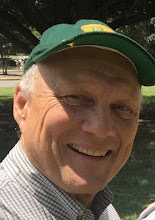Ruby Bridges Went to School
By David E. Crosby, Pastor
First Baptist New Orleans
November 14, 2010
Little Ruby Bridges walked into William Frantz Elementary School in the Upper Ninth Ward the morning of November 14, 1960, escorted by four U.S. marshals. She and Leona Tate, Tessie Prevost, and Gail Etienne at the McDonogh 19 Elementary School in the Lower Ninth Ward were the first black students after the federal court order mandating the end of segregation to attend a previously all-white elementary school.
Mandated integration was a windfall for private education in the South. Thousands of small schools, nonsectarian as well as religious, sprang up in the wake of the court order. De facto school segregation continued in many communities. Public education in the South sunk to new lows through these 50 years in part because white people who sent their children and grandchildren to private schools controlled public school boards and were often highly resistant to any school tax increases and marginally invested in the public school system.
The evident resistance to integration, not only in education but in all aspects of society, has been wide-ranging and far-reaching in its effect. Sunday morning worship continues to be the most segregated hour of the week in America. This reality seems to be changing as a new generation rises in our churches.
Race itself is a dimension of almost every discussion about education, economic development, criminal justice, religion, and medical services in our community though it is frequently unmentioned. As with gender or religion, our ethnicity is so thoroughly a part of our identity that to discuss it is to become intimate with and vulnerable to strangers in the room. Board rooms and court rooms are not generally peopled with good friends and family members. Who wants to open up such portals to the soul among those who do not really know you and probably do not love you?
Finding a vocabulary to discuss race is difficult. We fumble for words because we do not want to offend or deceive the listener, but we seem doomed to do one or the other. If we say what we are thinking we run the risk of broken relationships. If we skirt the real issues we propagate relationships built on mutual misunderstanding. Words have a life of their own once they are spoken. Detached from their context, intimate and heartfelt comments may be twisted and reinterpreted for political advantage. So we fall back into the safety of silence.
We are surrounded by fear. We are fearful about race itself and about the discussion of it. We fear losing ourselves as we open our minds and hearts to new relationships with a broader reach. We fear the loss of traditions and heritage. We also fear the loss of existing support structures and friendships should we step into the discussion about race relations. Words and actions have consequences in all communities.
Half a century has passed since that integration order, and we continue to work on the same problem. We struggle to love our neighbors as we love ourselves, even the very good ones. Jesus’ ancient tale about the Good Samaritan makes ethnicity the centerpiece in the question, “Who is my neighbor?” Our own “Samaritans,” whatever despised ethnicity that might be, we see as villains instead of heroes, subjects of suspicion and fear rather than admiration and respect. We who seek to follow Jesus tumble and stumble in a stuttering effort to obey this Great Command.
We are making progress. Many of our churches are more diverse than they were 50 years ago. The world is gathering at our doorstep, of course, and population trends have introduced new realities.
But attitudes have changed as we have drunk from the same fountains. The end of separate restrooms, restaurants, and schools was a beginning for greater common ground. Closer proximity tempered unreasonable fears and increased the cross-cultural dialogue.
The way forward is in part a personal and persistent effort at friendship, cooperation, and communication that recognizes and values our individual histories and emphasizes the shared concerns of living in the same space. Peace on earth is a dream that happens inch by inch, not mile by mile. Sometimes success is seen not so much in distance covered but in baggage set aside.
Today we acknowledge and lament the terrible injustices and deep wounds of the Jim Crow era. We ask forgiveness for the stubborn prejudices of race and class that plague us all and plague us still. And we celebrate the progress made, such as it is, toward mutual respect and neighborly love.
Sunday, November 14, 2010
Subscribe to:
Post Comments (Atom)




No comments:
Post a Comment